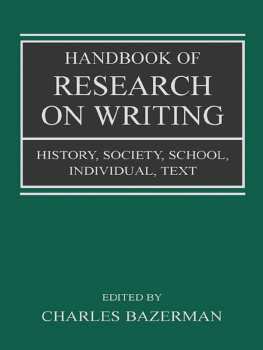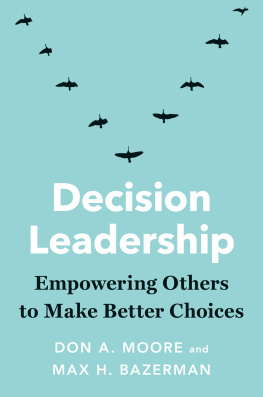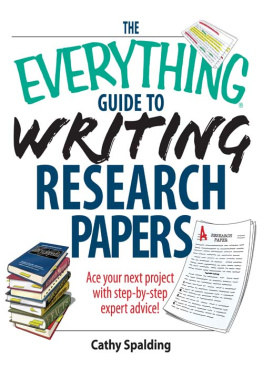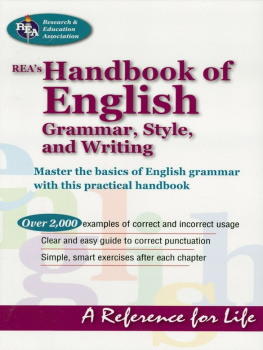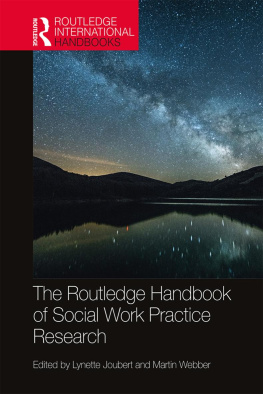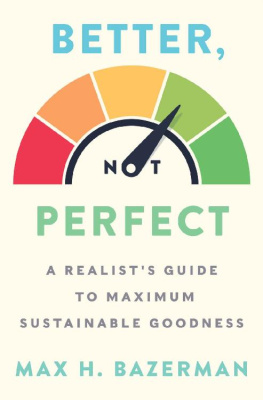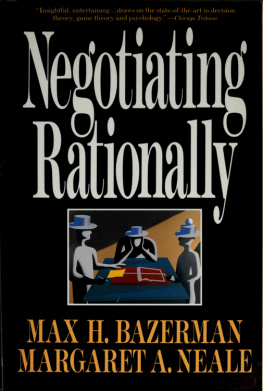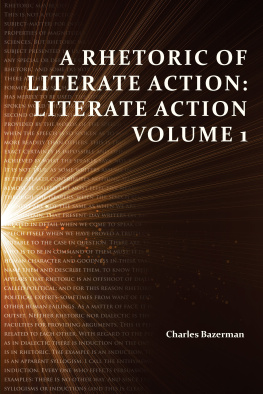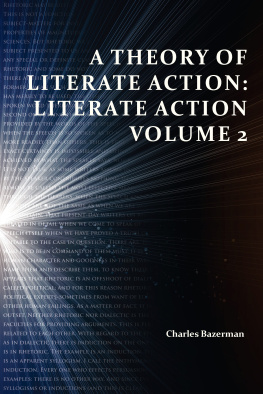Bazerman - Handbook of Research on Writing
Here you can read online Bazerman - Handbook of Research on Writing full text of the book (entire story) in english for free. Download pdf and epub, get meaning, cover and reviews about this ebook. year: 2011, publisher: TaylorFrancis, genre: Home and family. Description of the work, (preface) as well as reviews are available. Best literature library LitArk.com created for fans of good reading and offers a wide selection of genres:
Romance novel
Science fiction
Adventure
Detective
Science
History
Home and family
Prose
Art
Politics
Computer
Non-fiction
Religion
Business
Children
Humor
Choose a favorite category and find really read worthwhile books. Enjoy immersion in the world of imagination, feel the emotions of the characters or learn something new for yourself, make an fascinating discovery.
- Book:Handbook of Research on Writing
- Author:
- Publisher:TaylorFrancis
- Genre:
- Year:2011
- Rating:4 / 5
- Favourites:Add to favourites
- Your mark:
- 80
- 1
- 2
- 3
- 4
- 5
Handbook of Research on Writing: summary, description and annotation
We offer to read an annotation, description, summary or preface (depends on what the author of the book "Handbook of Research on Writing" wrote himself). If you haven't found the necessary information about the book — write in the comments, we will try to find it.
Bazerman: author's other books
Who wrote Handbook of Research on Writing? Find out the surname, the name of the author of the book and a list of all author's works by series.
Handbook of Research on Writing — read online for free the complete book (whole text) full work
Below is the text of the book, divided by pages. System saving the place of the last page read, allows you to conveniently read the book "Handbook of Research on Writing" online for free, without having to search again every time where you left off. Put a bookmark, and you can go to the page where you finished reading at any time.
Font size:
Interval:
Bookmark:

Lawrence Erlbaum Associates
Taylor & Francis Group
270 Madison Avenue
New York, NY 10016
Lawrence Erlbaum Associates
Taylor & Francis Group
2 Park Square
Milton Park, Abingdon
Oxon OX14 4RN
This edition published in the Taylor & Francis e-Library, 2009.
To purchase your own copy of this or any of Taylor & Francis or Routledges collection of thousands of eBooks please go to www.eBookstore.tandf.co.uk.
2008 by Taylor & Francis Group, LLC
Lawrence Erlbaum Associates is an imprint of Taylor & Francis Group, an Informa business
No part of this book may be reprinted, reproduced, transmitted, or utilized in any form by any electronic, mechanical, or other means, now known or hereafter invented, including photocopying, microfilming, and recording, or in any information storage or retrieval system, without written permission from the publishers.
Trademark Notice: Product or corporate names may be trademarks or registered trademarks, and are used only for identification and explanation without intent to infringe.
Library of Congress Cataloging-in-Publication Data
Bazerman, Charles.
Handbook of research on writing/Charles Bazerman.
p. cm.
Includes bibliographical references and index.
ISBN 978-0-8058-4870-0 (pbk.: alk. paper)ISBN 978-0-8058-48694 (hardback: alk. paper)
1. Written communication. 2. Rhetoric. 3. Discourse analysis. I. Title.
P211.B3942008
302.2!244dc22 2007018833
Visit the Taylor & Francis Web site at http://www.taylorandfrancis.com
ISBN 1-4106-1647-9 Master e-book ISBN
John Albertini, Rochester Institute of Technology
Arnetha F.Ball, Stanford University
Vijay Bhatia, City University of Hong Kong
Suzanne Bratcher, Northern Arizona University
Wally Chafe, University of California, Santa Barbara, emeritus
Ulla Connor, Indiana University, Purdue University, Indianapolis
Florian Coulmas, University of Duisburg, Germany
Anne Haas Dyson, University of Illinois, Urbana-Champaign
Elyse Eidman-Aadahl, University of California, Berkeley, National Writing Project
Sara W.Freedman, University of California, Berkeley
Jack Goody, Cambridge University, emeritus
John R.Hayes, Carnegie Mellon University, emeritus
George Hillocks, University of Chicago, emeritus
Gunther Kress, London Institute of Education
James Martin, University of Sydney
Susan McLeod, University of California, Santa Barbara
Sandy Murphy, University of California, Davis
David R.Olson, OISE, University of Toronto
Anthony Pare, McGill University
James Pennebaker, University of Texas, Austin
Paul A.Prior, University of Illinois, Urbana-Champaign
Gert Rijlaarsdam, University of Amsterdam
David Russell, Iowa State University
Peter Smagorinsky, University of Georgia
Anne Frances Wysocki, Michigan Technological University
The last 30 years have produced a wide interdisciplinary inquiry into how people write, how we learn to write, under what conditions and for what purposes we write, what resources and technologies we use to write, how our current forms and practices of writing emerged within social history, and what impacts writing has had on society and the individual. This research has been interdisciplinary and broad-ranging, but until recently there has been little attempt to aggregate these many strands of research and bring them together into a common intellectual space. This volume is an attempt to sum up what we know about writing and the many ways we know about it.
This volume will be, I hope, of use and interest to all scholars and researchers of writing as well as to those just starting down the path of writing research. But I also hope this volume will be of interest and use to anyone who teaches writing or is just curious about writing. Writing is a powerful and complex technology that touches the lives of writers deeply, and affects the lives of all in contemporary society, but we have barely begun to perceive that power. The various chapters in this volume, in summing up our knowledge, deepen our experience and appreciation of writing in ways that will make us better teachers of writing as well as individual writersfor the knowledge here deepens our sense of what we do every time we write or attempt to expand a students capacity to write.
In commissioning the chapters of this volume and editing them, I have learned much more than I could have ever hoped to learn, for it has put me in contact with the experience and thought of some of the top scholars that have addressed every aspect of writing. The Advisory Board includes eminent researchers from many nations and many specialtieswith focus on all aspects of writing. All authors of the 37 chapters, chosen from an international range of eminent researchers, have been faithful to a charge to seek out relevant materials from diverse research traditions in all countries. Authors and board members come from disciplines as diverse as anthropology, archaeology, typography, communication studies, linguistics, journalism, sociology, rhetoric, composition, law, medicine, education, history, and literary studies.
The volume is organized in five parts. Part I considers the history of writing as a set of intertwined technologiesof symbol system, of production and distribution, of graphic design, of the book, and of reflection on these technologies. Part II surveys from an historical and social perspective the many social domains within which writing has had tran formative effect and has become part of the cognitive and material infrastructureeconomy, law, government, knowledge, libraries, literature, journalism, professional work, and everyday life. Part III then considers writing instruction within the specialized institutions designed to teach people literacyconsidering schools within history and at all levels, as well as the preparation of writing teachers and practices of assessment. Part IV focuses on individuals as they develop as writers throughout their life span, how cognition, affect, and identity are engaged and influenced by writing, how communication disorders affect writing, and how multilinguality provides special conditions for writing development. Part V considers specifically textual elements that each writer must make choices about, from the sentence up through the larger structure of text organization and argument, through design issues facilitated by new writing technologies.
A volume such as this relies on the contribution of countless numbers of scholars and colleagues. If I do attempt to list names, I will miss more than I catch, and still the list will go on for many pages. This volume bears the mark of all who have toiled as researchers and teachers to advance our understanding of writing and to advance student learning, helping to make our societies more literate, more communicative, more intelligently coordinated, more knowledgeable. More directly, each chapter has been improved by the many colleagues and the various authors I have consulted and who have been generous in their help. The bibliographic queries, reading of drafts, engaged conversations have been endless and uncountable. More specifically, the members of the Advisory Board and the authors of the chapters have borne much responsibility for commenting on the developing manuscripts for each chapter, so that each separate piece bears marks of the collaboration of the whole.
Font size:
Interval:
Bookmark:
Similar books «Handbook of Research on Writing»
Look at similar books to Handbook of Research on Writing. We have selected literature similar in name and meaning in the hope of providing readers with more options to find new, interesting, not yet read works.
Discussion, reviews of the book Handbook of Research on Writing and just readers' own opinions. Leave your comments, write what you think about the work, its meaning or the main characters. Specify what exactly you liked and what you didn't like, and why you think so.

